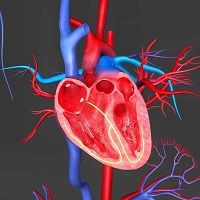Halted Heart Device Trial Leaves Ethics, Efficacy Questions
A device manufacturer's decision to halt a trial of a pump-and-filter system that removes excess salt and fluid from heart failure patients left researchers with promising but statistically insignificant data. It also raised questions about whether that manufacturer acted ethically.

Patients with congestion from heart failure did better with aquapheresis--a therapy involving a pump-and-filter device system that extracts excess fluid and salt from a patient’s blood without drugs—than they did on diuretics, researchers report. The trial was known as AVOID-HF. There were 30 centers in the US enrolled as trial sites.
Unfortunately, the researchers write in the Journal of the American College of Cardiology: Heart Failure, the trial’s sponsor, a device manufacturer, prematurely stopped the trial “because of slower-than-projected study enrollment.” The team had enrolled 224 hospitalized patients, or 27.5% of their goal of 810 patients. At that point, the device manufacturer sponsor, Sweden's Gambro, had been purchased by Baxter International, and the new owner decided to halt the trial.
The termination was not due to concerns about safety or efficacy, lead author Maria Rosa Costanzo, MD of Midwest Heart Specialists-Advocate Medical Group, Naperville, Ill. and colleagues wrote in the journal article.
In an accompanying editorial, Daniel Mark, MD, MPH of Duke Clinical Institute and Christopher O’Connor, MD, editor-in-chief of JACC, wrote there are often “ethical complexities” that arise when private entities, such as device manufacturers, fund trials.
They called on such business sponsors to “accept certain social obligations that may trump what they consider to be in the best interest of their business.”
But they stopped short of saying that in the AVOID-HF trial the company acted unethically.
“The trial was probably too complex and inadequately funded” and that may have led to the “poor recruitment rates” that led to it taking so long, they wrote.
The researchers said their results showed that the treatment merits further study.
Of the patients who completed the trial,110 were given adjustable ultrafiltration aquapheresis (AUF) and 114 had treatment with adjustable IV loop diuretics (ALD).
Though the results could not be considered statistically significant due to the fact that the trial was halted before there were enough patients to given it statistical power, the authors are convinced the AUF treatment was superior.
The AUF group “had greater total amount of fluid removed (18.7liters vs. 14.0 liters) and more fluid loss (12.9 liters vs. 8.9 liters.)
“There is sufficient evidence to show that within 30 days after discharged, compared to the ALD group, patients in the AUF group had, per days at risk: fewer patients re-hospitalized for heart failure and fewer days in the hospital due to heart failure readmissions,” they wrote.
One negative in the AUF group’s results was that those patients had more “adverse events of special interest” including central-line associated blood infections, bleeding requiring transfusion, symptomatic hypotension, and drops in hemoglobin.
In the editorial, the authors conclude “While the outcome in AVOID-HF is very disappointing for those of us who thought the potential of intensive decongestion in acute heart failure deserved testing in an adequately powered trial” it points to a need “to only start trials that are designed efficiently, budgeted adequately and clearly feasible in terms of enrollment targets.”
They also noted that the ethical questions that arose when sponsors pulled the plug on the research are nothing new.
Biomedical companies are often driven by profit, regardless of altruistic intent,” a motivation that has led to “powerful new therapies that have helped millions of patients,” they concluded.